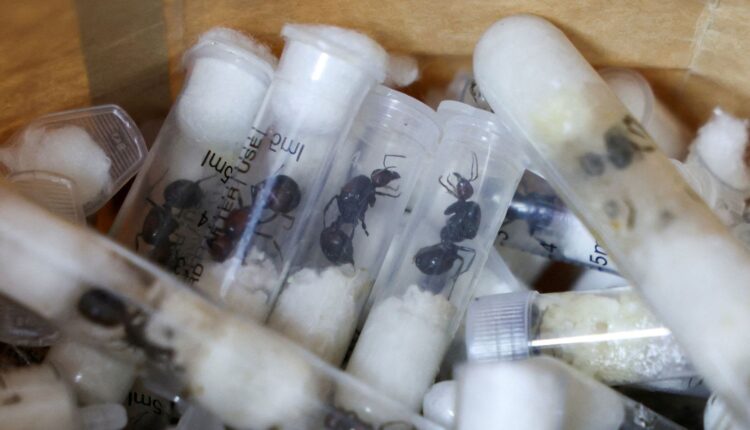Belgian Teens Nabbed in Kenya for Smuggling 5,000 Exotic Ants
Two Belgian teenagers have been charged with wildlife trafficking in Kenya after authorities discovered they were smuggling 5,000 live ants, drawing attention to the rising trade in lesser-known species.
The teens, Lornoy David and Seppe Lodewijckx, both aged 19, were arrested on April 5 at a guesthouse in Nakuru County. During their court appearance at the Jomo Kenyatta International Airport Law Courts in Nairobi, the visibly shaken duo, supported by relatives, claimed they were collecting the ants “for fun” and were unaware their actions were illegal.
According to authorities, the ants — including Messor cephalotes, a large red harvester species native to East Africa — were destined for international markets, where such insects are sold as exotic pets.
In a related case, Kenyan national Dennis Ng’ang’a and Vietnamese national Duh Hung Nguyen were also charged with illegal possession and trafficking of 400 ants found in their Nairobi apartments.
The Kenya Wildlife Service (KWS) said the incidents reflect a shift from trafficking iconic species like elephants and rhinos to smaller, ecologically critical organisms. KWS warned that such illegal exports threaten Kenya’s biodiversity and rob local communities and scientists of ecological and economic benefits.
“The export of these ants not only violates Kenya’s sovereign rights over its natural resources but also threatens ecological balance,” KWS said in a statement.
Authorities found the 5,000 ants inside 2,244 test tubes filled with cotton wool to keep the insects alive during transport. The entire collection was valued at 1 million Kenyan shillings (about $7,700), though prices vary based on species and destination.
Philip Muruthi, Vice President for Conservation at the African Wildlife Foundation, highlighted the ants’ vital role in ecosystems, saying, “Ants enrich soil, help germinate seeds, and serve as prey for birds. A thriving forest depends not just on trees but on organisms like ants that support the entire system.”
Muruthi added that unregulated insect trafficking could spread diseases and harm ecosystems in importing countries, calling for strict controls on any form of wildlife trade.
“Even if there is trade, it must be legal and well-regulated. No one should extract our natural resources without consent,” he said.


